GORHAM — Eddie and Rebekah Benson have made a business out of turning lobster carcasses, dead sea urchins and other “seafood waste” into nutrient-rich compost for people’s gardens.
But the 43-foot whale that arrived on a flatbed truck one morning in late September was, well, a slightly bigger challenge.
“It’s the difference between cooking a chicken and cooking a turkey,” Eddie Benson said with a laugh while standing next to the steaming compost pile of whale parts. “It’s the same thing, only bigger.”
Less than eight weeks after it was found floating dead off Boothbay Harbor, the stripped-down skeleton of the young North Atlantic right whale had “cooked” enough inside a gigantic mound of compost and sawdust at Benson Farm Earth Products for a team of volunteers to begin removing the (mostly) flesh-free bones.
After a front-end loader gently cleared away surface dirt and loosened the mound, gloved volunteers used their hands to extract vertebrae the size of lobster boat propellers and ribcage bones that if straightened would stand taller than the people carrying them.
The lower jaw bones of the right whale – one of the rarest whale species on the planet – were so large that only the front-end loader could carry them, and even then they were several feet longer than the bucket. And some of the steaming bones were still so hot from the microbial action of the compost pile that they burned through the volunteers’ latex gloves.
Overseeing this dirty and rather smelly excavation was Lynda Doughty, who as executive director of Marine Mammals of Maine was given legal custody, of sorts, of the remains of the federally endangered right whale.
“That’s so pretty. Awesome!” Doughty said as a scapula the size of a card table – which connected one of the whale’s fins – slowly slid out of the bucket loader. “That is what we want to see.”
Many of the bones emerging from the pile were intact and relatively clean, except for the inevitable dirt. A former marine mammal specialist with the Maine Department of Marine Resources, Doughty has helped dispose of numerous whales over the past 17 years but said this was the first North Atlantic right whale. And that presents an opportunity.
“The end-all (goal) would be to use it for educational purposes and to have it re-articulated somewhere, whether that is at our future facility or at another,” Doughty said.
But that takes money and time. For now, the bones will be stored by Marine Mammals of Maine, a Bath-based nonprofit that — along with the College of the Atlantic’s Allied Whale program — has federal permits to handle stranded, injured or dead marine mammals in the state.
So begins the next post-life stage for whale No. 3694, as she is known in the scientific community.
First spotted in 2006, whale 3694 was a younger female just entering her reproductive years when she became badly entangled in fishing gear somewhere along her migratory route in September. A necropsy performed at Benson Farm revealed that the 11-year-old whale had rope around its head, in its mouth and both flippers.
Whale 3694 was one of two right whales found dead off the coast of Maine within a two-day span. A third was freed from fishing line off the coast of Massachusetts just days earlier.
Back at Benson Farm, the compost pile was shrinking Friday afternoon as volunteers stacked bone after bone in the bucket of a second front-end loader. During the September necropsy, the team had removed as much of the blubber, skin and fluke of the whale as possible in order to speed up the process of “cleaning” the skeleton.
Rebekah Benson said her family has composted several smaller whales before, but nothing the size of whale 3694. As she spoke, the acrid smell of composted whale – a pungent aroma difficult to classify – periodically wafted over the area.
Whales may not smell good while breaking down in the compost pile, but they yield good compost, she said. Ironically, Benson Farm most likely won’t be allowed to bag any of the resulting compost for their commercial business because federal law prohibits the sale of parts of marine mammals.
But Benson said they hope to use it around the farm, at least.
Send questions/comments to the editors.


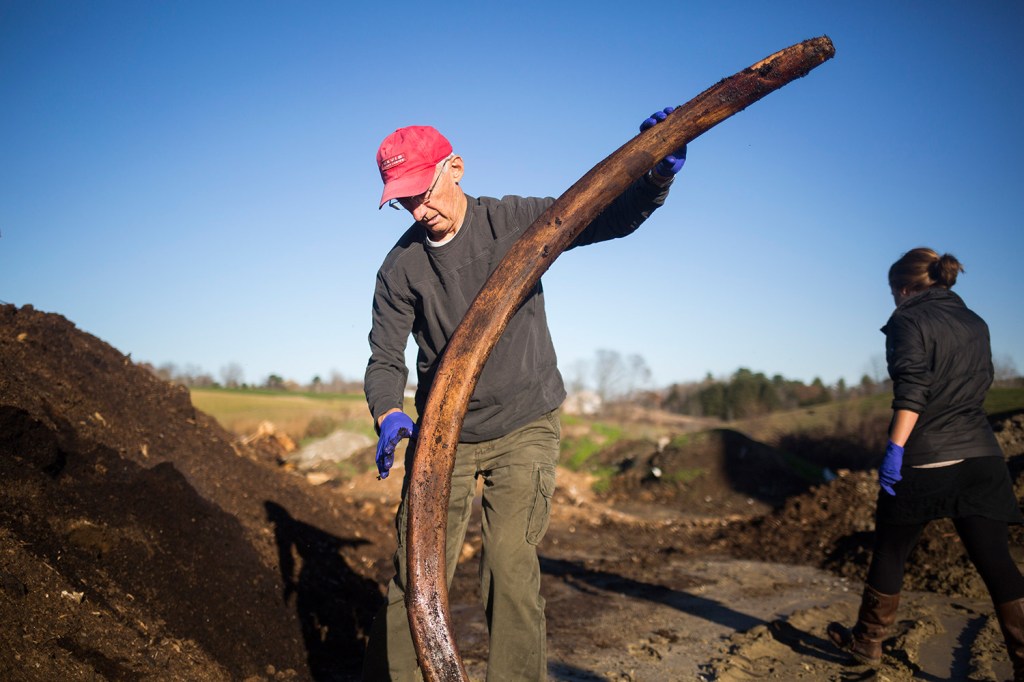
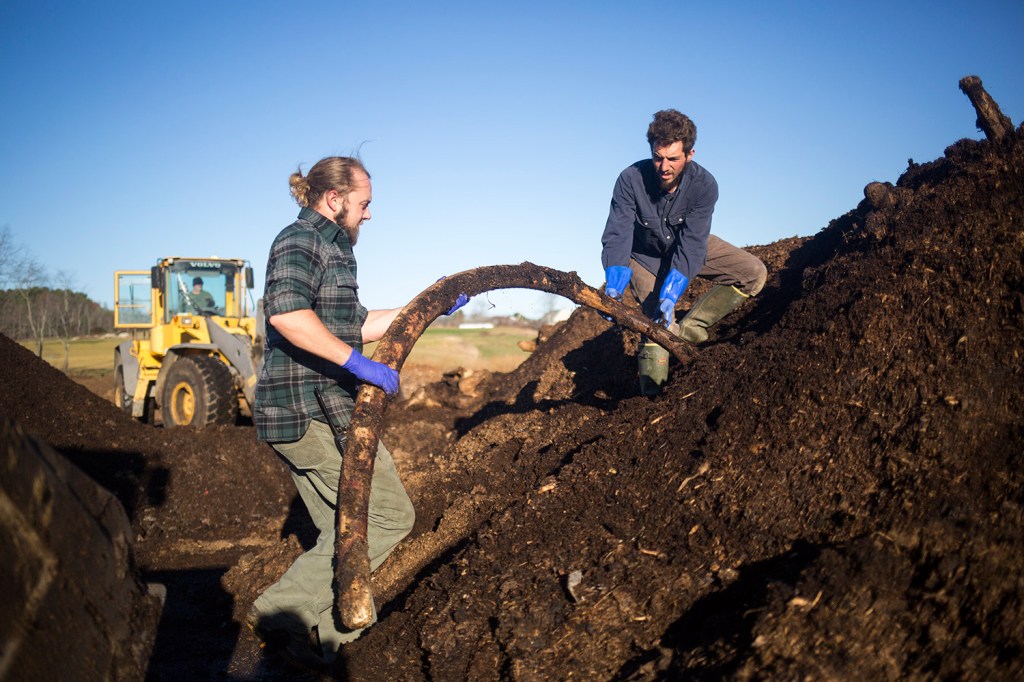
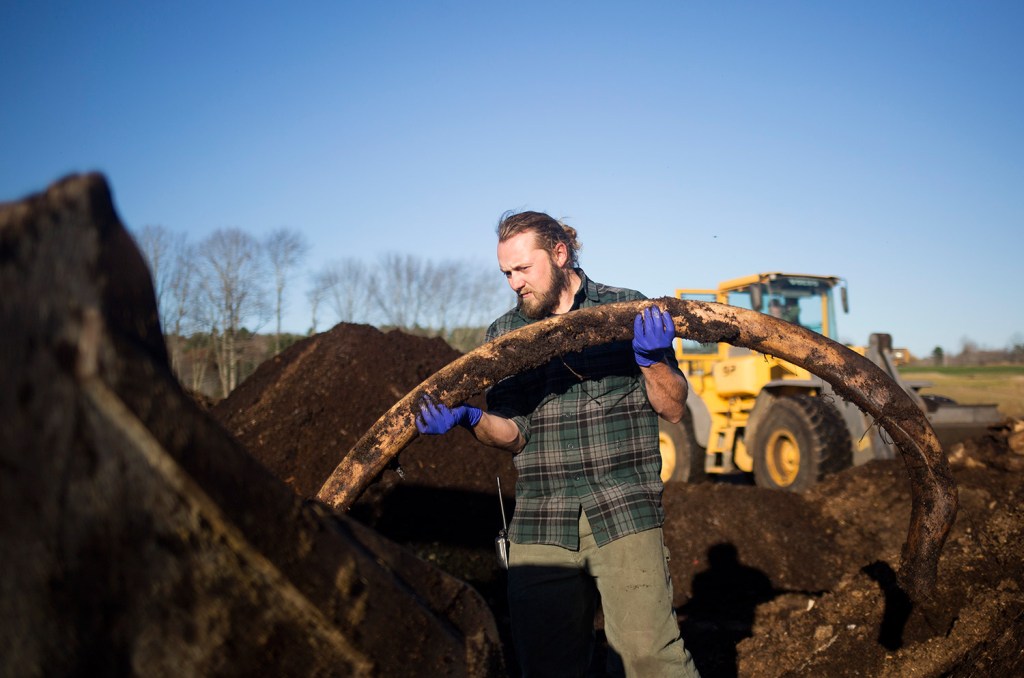
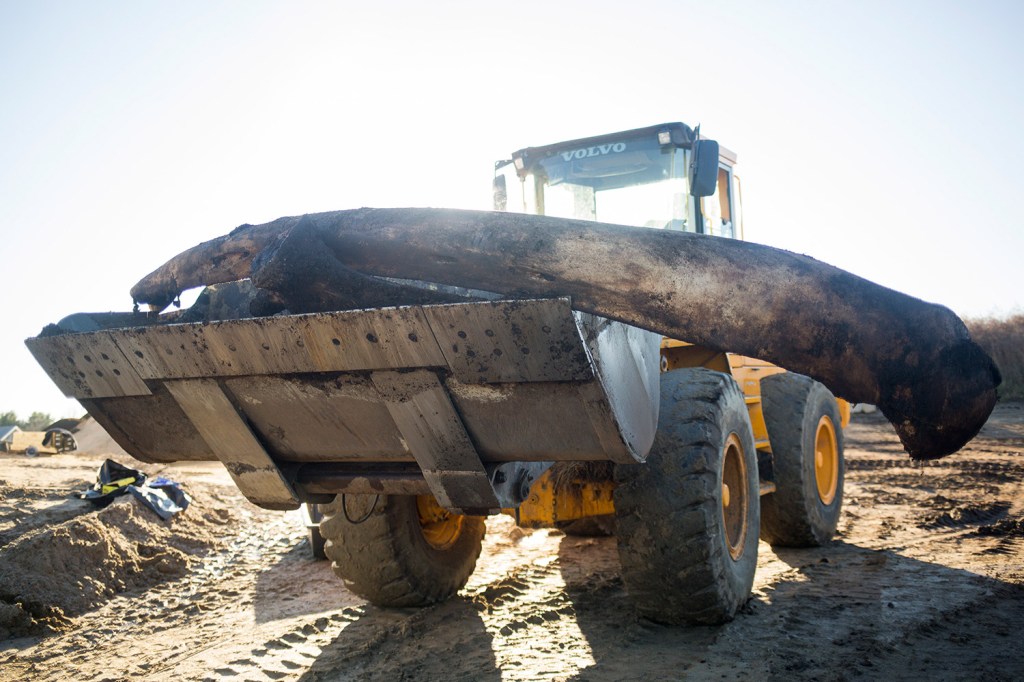
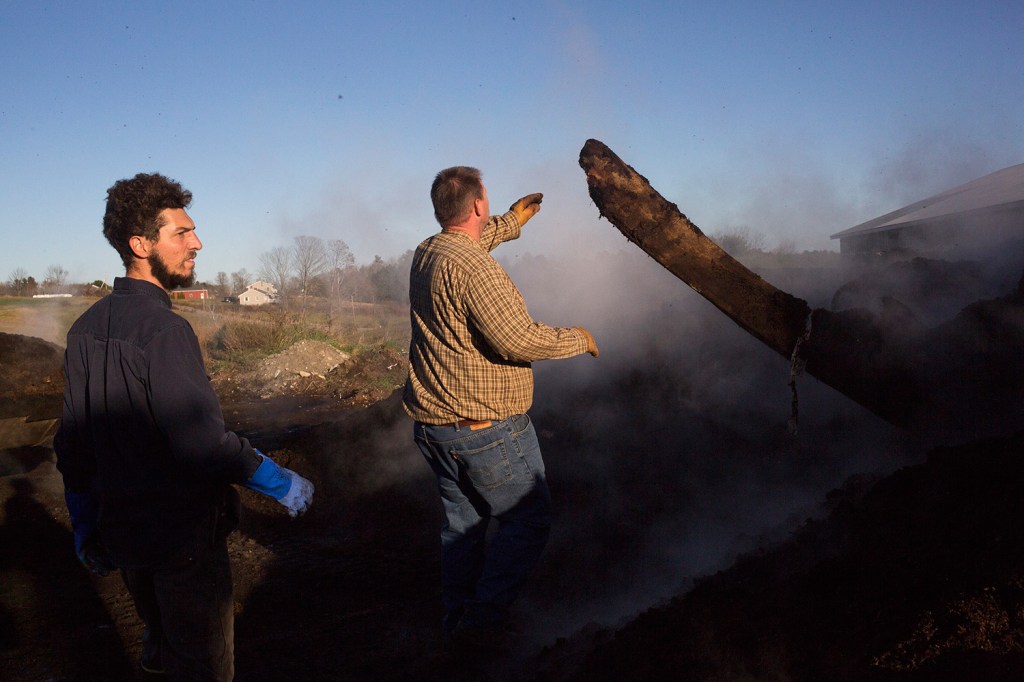

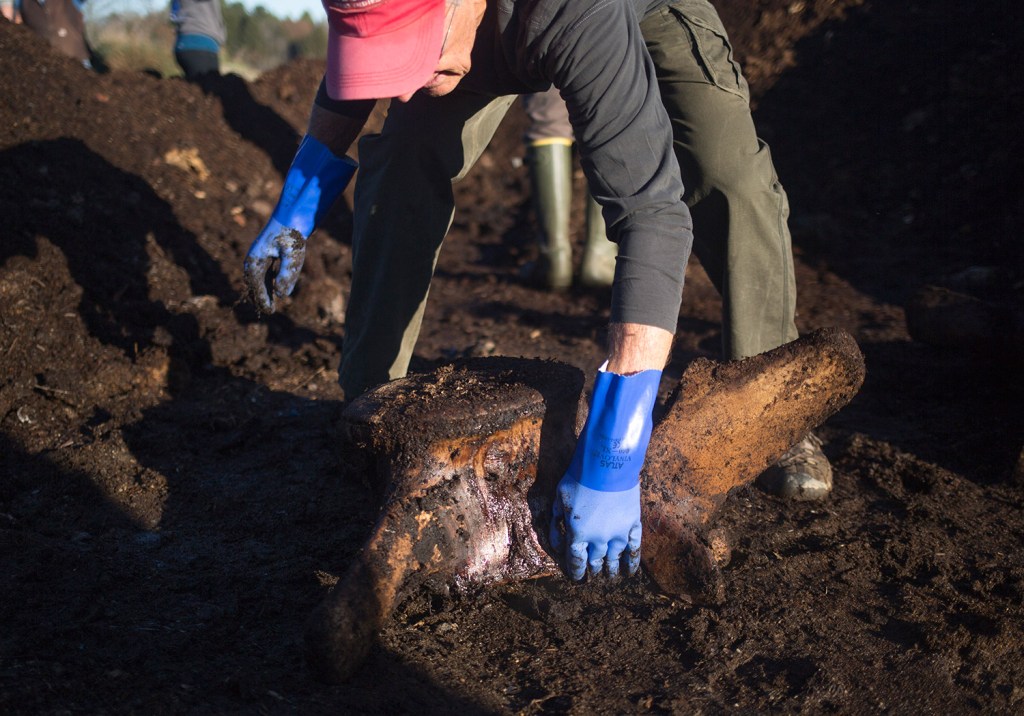
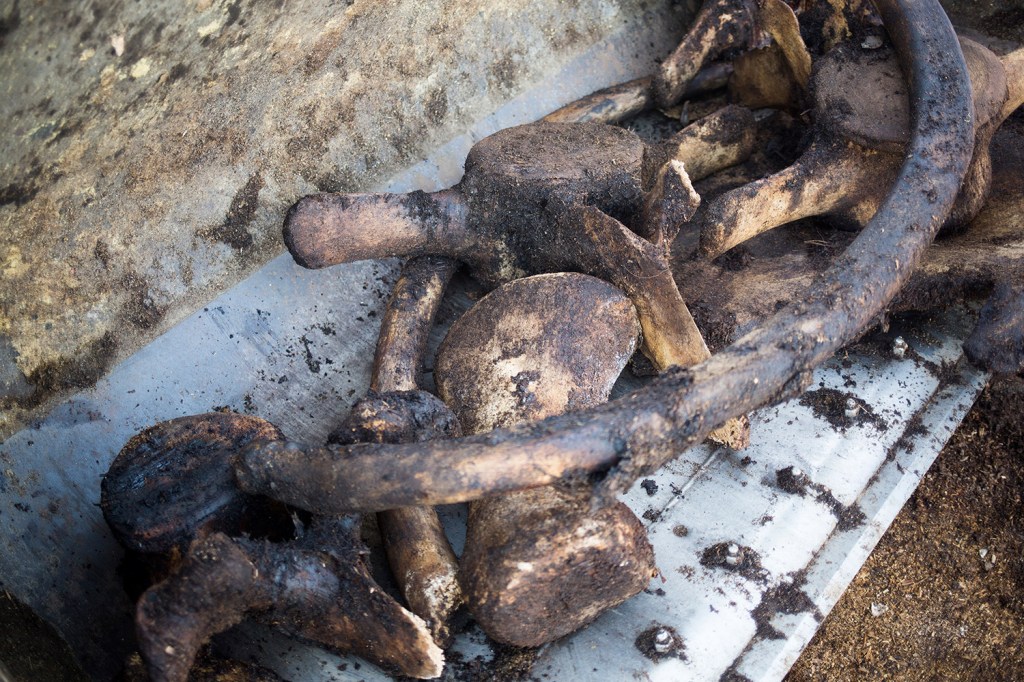
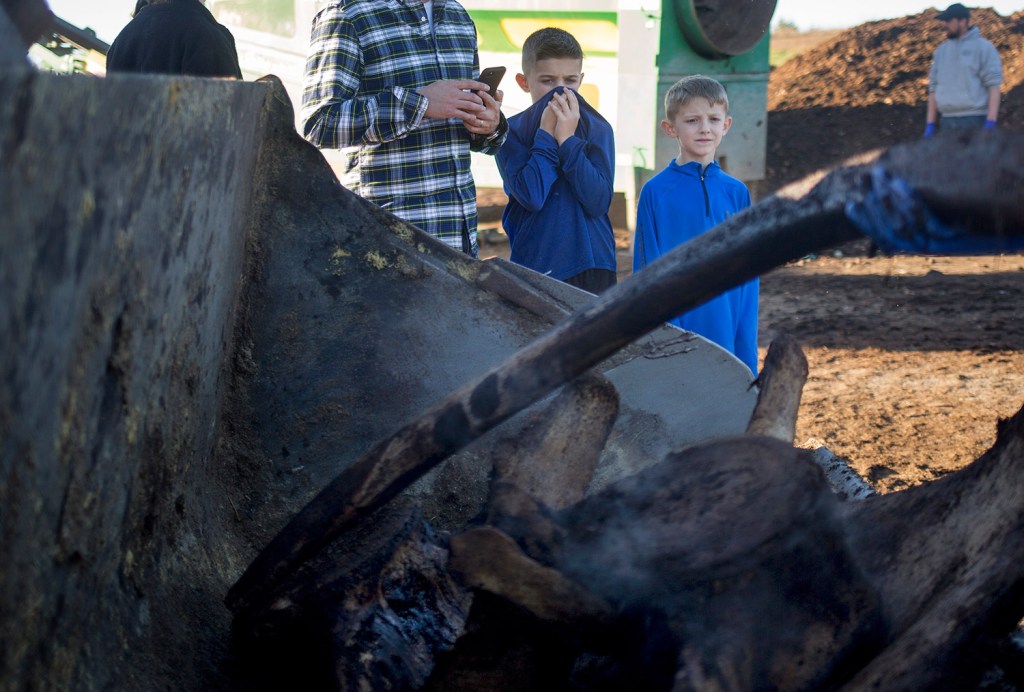

Success. Please wait for the page to reload. If the page does not reload within 5 seconds, please refresh the page.
Enter your email and password to access comments.
Hi, to comment on stories you must . This profile is in addition to your subscription and website login.
Already have a commenting profile? .
Invalid username/password.
Please check your email to confirm and complete your registration.
Only subscribers are eligible to post comments. Please subscribe or login first for digital access. Here’s why.
Use the form below to reset your password. When you've submitted your account email, we will send an email with a reset code.